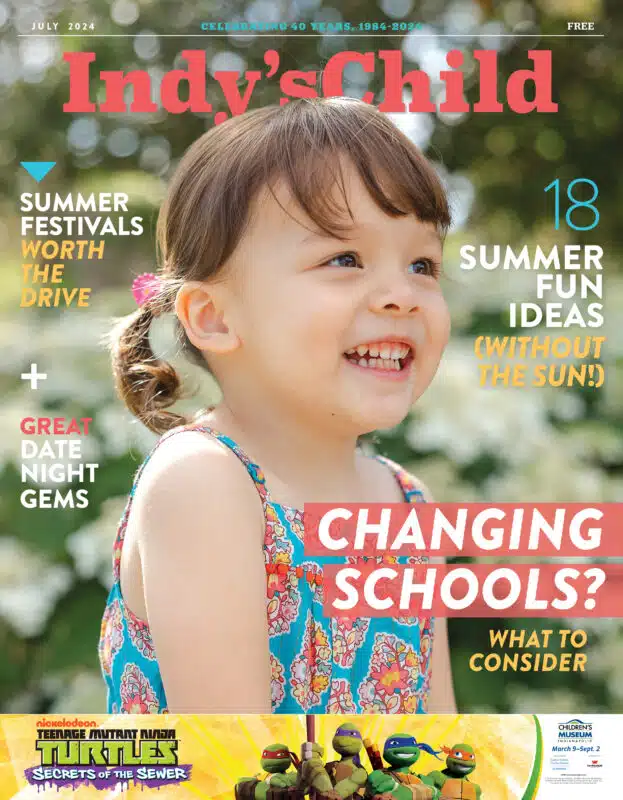From the outside, preschool might look like just fun and games- and it is! But inside the classroom, children are developing important emotional and social skills. Indy’s Child spoke with preschool teachers and administrators throughout the city to find out just what children learn in a preschool classroom, and why a preschool education can help lay the foundation for a child’s future success.
“We all know that brain development is highest during the first three or four years of life,” says Janie Waldman, Early Childhood Director of Beth-El Zedeck Early Childhood Center. “So we give kids a foundation and a love of learning in a safe and happy environment both socially and academically.”
Angie Richardson, a pre-K teacher at Beth-El Zedeck, stresses that one of the most important things kids learn in preschool is socialization. “They’re learning to get along with their peers, they’re getting ready to develop strong physical, emotional and cognitive skills to get them to the next step.”
Angela Smith, an assistant in the preschool classroom at Indiana Montessori Academy, says that the emphasis in her classroom is also a social one. “We teach our children to be aware of their own self and the community around them. They learn to be gracious and courteous so that they can be good friends in our classroom and then go out later in life and be good citizens in our community.” But, she adds, the kids also learn practical life skills like how to clean a table or prepare a snack for a friend.
And at The Orchard School, a progressive nature-based preschool, the focus is on helping kids build a sense of identity. “We want our kids to care for themselves and their identity, to see who they are as a part of a community and contribute. We want them to care enough now to advocate later,” says Heather Girton, a multi-age preschool teacher at The Orchard School. “Our mantra in our room is, ‘You can do hard things.’”
Waldman points out that preschool also plays another important role that parents may not be aware of. “Weaknesses are recognized early in the preschool classroom,” she says, “and early intervention can begin.”
A typical day in a preschool classroom varies somewhat, depending on the school. The Orchard School has forty-two acres of land where kids can learn. “Our day will look different depending on what we are exploring for the day. The kids vote in the mornings about where to go, and they’re off,” says Girton.
At Beth-El Zedeck they have a daily schedule they follow closely. This includes exposing children to math and language arts as well as cooperative play and free time. “In the morning we do some academics and we also look at social and emotional wellness,” says Richardson. “We teach them responsibility, to put their coat up and put folders away.”
The experiences that children have in preschool help prepare them, both academically and socially, to enter elementary school. “The exposure to how to pace yourself in a day definitely gives kids a leg up when they go into kindergarten,” says Girton. “Experience and practical use of those self-care skills gives them the confidence and independence that is going to make the transition into school much easier.
Girton also stresses that the social and emotional skills that children learn in preschool are what makes this experience so important for any child, no matter where they receive their education. “Those are the things that pave the way for the academics to happen and it invests the child in their own learning.”
When choosing a preschool for their child, parents may consider a number of factors. Location, cost, class size and the overall feel of the classroom all play a role in choosing a preschool classroom that works for your family. Girton suggests asking around and getting preschool recommendations and then going out and seeing the program with your own eyes. “A program worth looking at will have a lot of opportunities for you to come and visit.”
Girton also says it’s important that you understand what the priorities are for each preschool that you are considering. “Every school has something different to offer and things that they emphasize,” she says.
No matter which preschool you choose, your child will learn valuable social, emotional and self-help skills that will set the foundation for their years in the classroom.
“Children are very impressionable and eager to learn,” says Smith. “So why not make good impressions and make sure they have good memories of how to learn?” A preschool education will help children form good academic and social habits and help them become more independent, too. Smith adds, “Preschool can really set three to six-year-olds up for life.”







